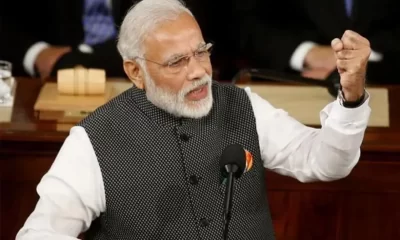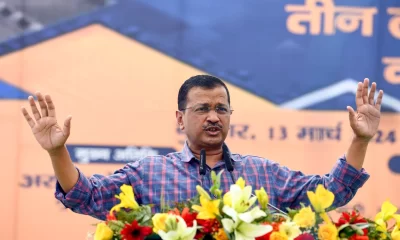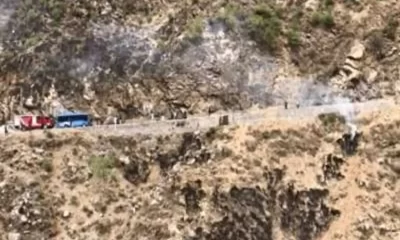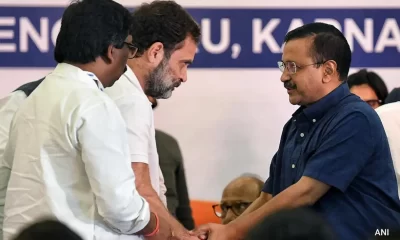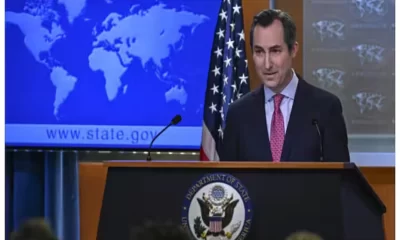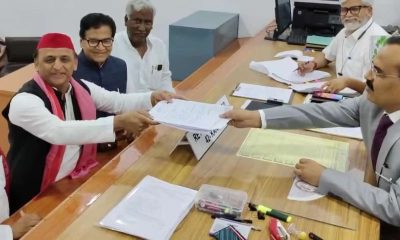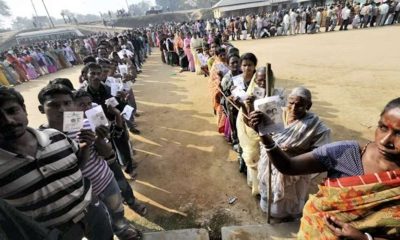India News
Saeed house arrest a diplomatic win for India
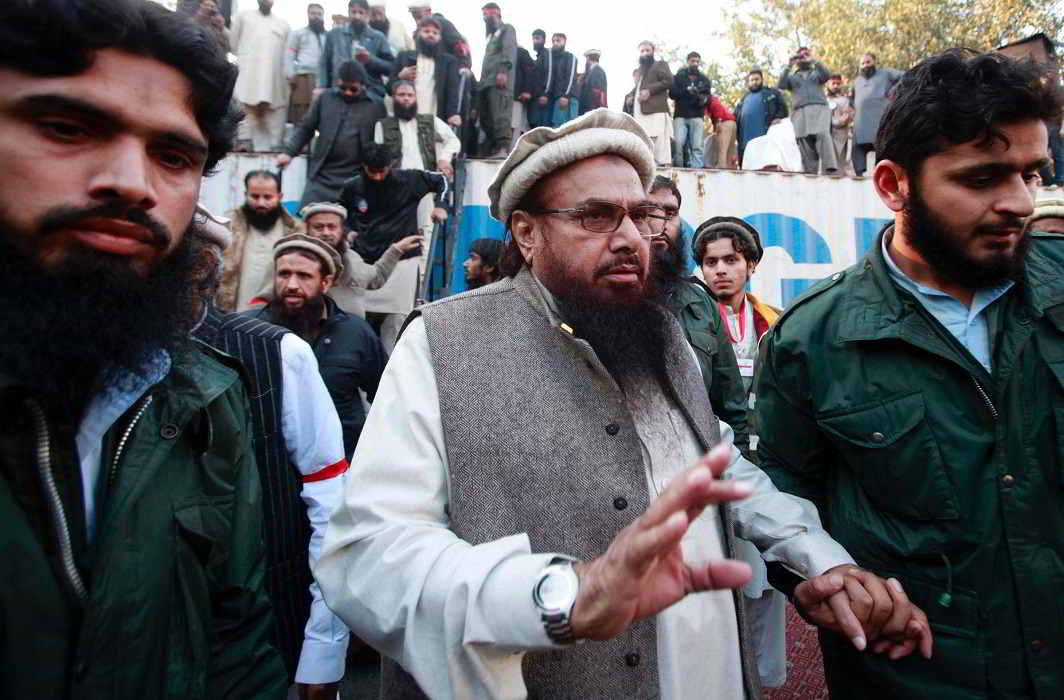
[vc_row][vc_column][vc_column_text]New Delhi’s success in isolating Pakistan globally forced Islamabad’s hand
By Abu Turab
India’s aggressive diplomacy against Pakistan for its support to cross-border terrorism has been productive and has led to a sense of isolation in Islamabad which is what reportedly forced Pakistan to place Jama’at-ud-Da’wah chief Hafiz Saeed under house arrest on January 30. India has been, for quite some time, demanding that Saeed be put on the United Nations-sanctioned terrorists’ list.
New Delhi’s recent diplomatic moves began when it refused to approve the appointment of Amjad Hussain Sial as Secretary General of the South Asian Association for Regional Cooperation (SAARC) in January this year. Sial is Islamabad’s candidate as it was supposed to host the 19th SAARC summit in November last year, but the event fell through when India decided to boycott it and other countries also pulled out.
In the normal course,the appointment of the Secretary General is approved by the Council of Ministers of the member countries when they meet before the summit. New Delhi feels that Sial’s appointment should not be cleared without following the set procedure.
According to Hindustan Times, the ministry of external affairs asked the SAARC secretariat, currently in Kathmandu, to follow the process laid down in the charter for appointing the Secretary General. India emphasized that the appointment should not be done merely through a diplomatic note. It pointed to Article V of the MoU on the establishment of the SAARC secretariat. But the Council of Ministers’ meeting could not take place because the boycott prevented the summit being held.
Pakistan’s reputed Dawn newspaper reported on February 1 that officials in Islamabad accuse India of employing “delaying tactics” and insist that concurrence had been received from all members, including India. A copy of an Indian diplomatic note dated May 30, 2016, conveying concurrence for Sial’s appointment, was shared by Dawn.
Pakistan also claims that Sial’s nomination was made at the SAARC Council of Ministers in Pokhara, Nepal, in March 2016 and was endorsed by all member states.
Relations between the two nuclear-powered neighbours nosedived last year when violence erupted after the killing of Burhan Wani, the poster boy of the Hizbul Mujahideen, in an encounter with security forces in Kashmir in July last year. India also accuses the Jaish-e-Mohammad, a Pakistan-based terror group, for attacking its military camp in Uri, killing 17 soldiers, in September last year. At one point of time Union Home Minister Rajnath Singh had even called Pakistan a terrorist state.
Dawn observed that the Indian leadership does not say it, but a sub-regional transport agreement and statements by Prime Minister Narendra Modi indicate that India is working towards a regional bloc minus Pakistan. Furthermore, by isolating Pakistan, it believes, India is trying to gain maximum leverage and influence in the region.
The Pakistani daily talked about Pakistan’s importance in the region and observed that Pakistan, besides its large territorial size, has been an active member of SAARC and is currently contributing 24 percent of the secretariat’s budget.
Meanwhile, the Pakistan Prime Minister’s adviser on foreign policy, Sartaj Aziz, on January 27 alleged that India, by boycotting the SAARC summit, “impeded” the grouping’s process and “violated the spirit of its charter”. Aziz was speaking while meeting outgoing SAARC Secretary General Arjun Bahadur Thapa in Islamabad. Thapa’s stint ends on February 28.
The Islamabad Foreign Office, while quoting Aziz, in a statement said that “Pakistan remains committed to hosting the 19th SAARC Summit at Islamabad at the earliest so that the objectives of the regional cooperation can be pursued more vigorously.”
In a damage control exercise, Pakistani establishment chose to place Saeed under house arrest. He is the Mumbai terror attacks mastermind, the Lashkar-e-Taiba founder and the Jama’at-ud-Da’wah chief.Saeed said his house arrest was the result of pressure from India because of his advocacy of freedom of Kashmir and Balochistan. Among the reasons for his arrest, he cited the bonhomie between Modi and US President Donald Trump.
Saeed was earlier placed under house arrest in December 2008 after the Mumbai terror attack and again in September 2009. On both occasions, the house arrest was lifted after a short duration.
On January 9 Dawn reported that the civilian government had informed the military leadership of “growing international isolation of Pakistan” and sought consensus on several key actions by the state. Prime Minister Nawaz Sharif also directed fresh efforts to conclude the Pathankot investigation and resume Mumbai terror attack-related trials in the anti-terrorism court in Rawalpindi.
According to the daily’s report, the message was clear that military-led intelligence agencies were not to interfere if law enforcement agencies acted against militant groups that are banned or considered off-limits for civilian action.
Dawn further revealed that Foreign Secretary Aizaz Chaudhry, in a presentation in the PMO, summarized the results of the recent diplomatic outreach by Pakistan and described the isolation it has been facing in major world capitals. He said that relations have deteriorated and will likely further deteriorate because of the US demand for action against the Haqqani network. On India, Chaudhry stated that completion of the Pathankot investigation and some “visible action” against the Jaish-e-Mohammad were among the principal demands.[/vc_column_text][/vc_column][/vc_row]
Education
Farmer’s son Nilkrishna Gajare Nirmalkumar from Maharashtra scores 100 NTA score in IIT-JEE Mains 2024
Nilkrishna Gajare’s father is a farmer and had to discontinue his own education after Class 12 as he faced financial difficulties. Gajare faced financial challenges growing up. However, his unwavering dedication and strategic approach to preparation set him apart from the crowd.
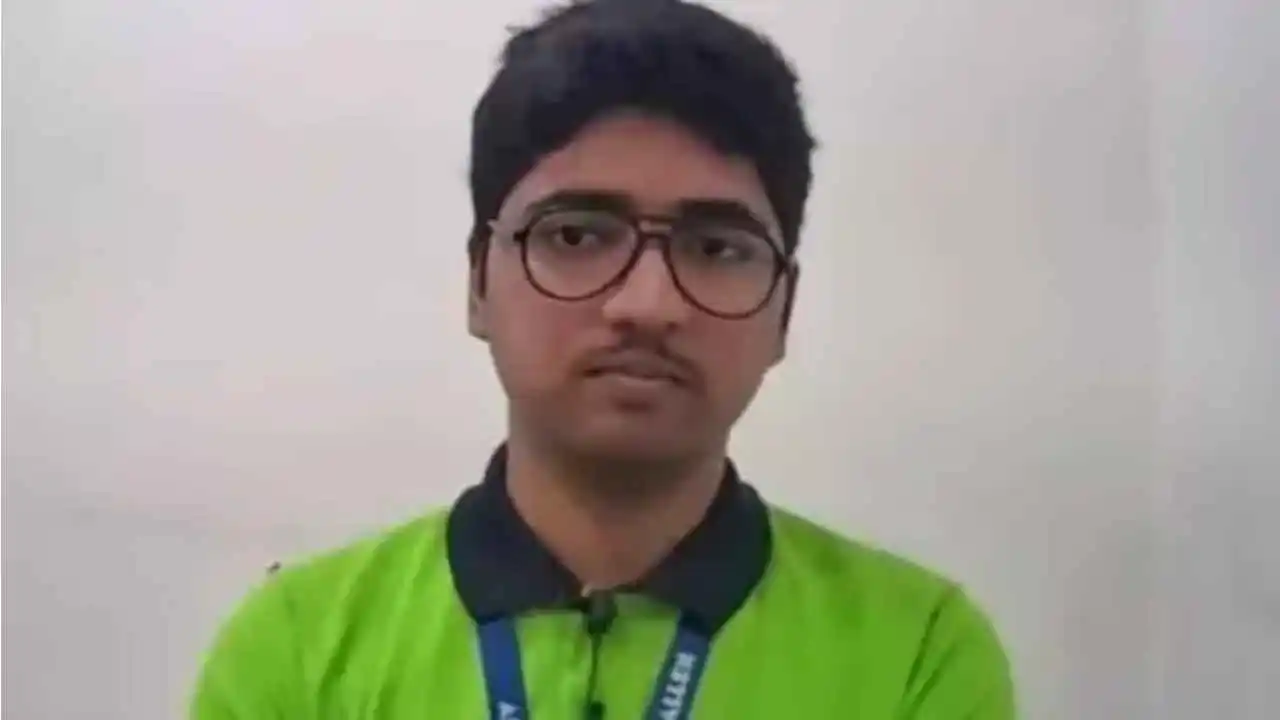
Nilkrishna Gajare, who hails from Maharashtra’s Washim, achieved an extraordinary feat by securing a perfect score of 100 in the JEE Main 2024 examination. His journey from humble beginnings to the pinnacle of success is a source of inspiration for many people.
Nilkrishna Gajare’s father is a farmer and had to discontinue his own education after Class 12 as he faced financial difficulties. Gajare faced financial challenges growing up. However, his unwavering dedication and strategic approach to preparation set him apart from the crowd, which resulted in his remarkable achievement of emerging as topper of one of India’s toughest Engineering entrance exams.
Nilkrishna Gajare had a strategic plan that helped him succeed in IIT-JEE 2024. According to Nilkrishna persistence is important and one should never stop trying until they understand a topic. He said being curious and asking questions are important traits of a good student. He said one should not be ashamed of asking questions.
Nilkrishna spent around 10-15 hours every day studying on his own for the JEE Main exam. He mentioned that he used his class notes for Physics and Physical Chemistry. For organic chemistry and inorganic chemistry, he relied on both notes and practice questions.
As for Mathematics, he believed that practicing regularly was the most important thing for him. Other interests of Nilkrishna include archery. He has participated at both state and national levels, and he finds joy in the sport. He said archery helps him understand the importance of focusing his attention on his goals. Nilkrishna likes watching movies and said they are a great source of enjoyment and relaxation.
He likes to watch a movie after exams and occasionally treats himself to one each week too. Gajare aims to keep up the pace for the JEE-Advanced exam and hopes to get into the IITs. He said he wants to secure admission in IIT-Bombay in the computer science branch.
2024 Lok Sabha Elections
Lok Sabha elections: Samajwadi Party chief Akhilesh Yadav files nomination from Kannauj
The Samajwadi Party has announced Akhilesh Yadav as its official candidate for the Kannauj Lok Sabha seat today
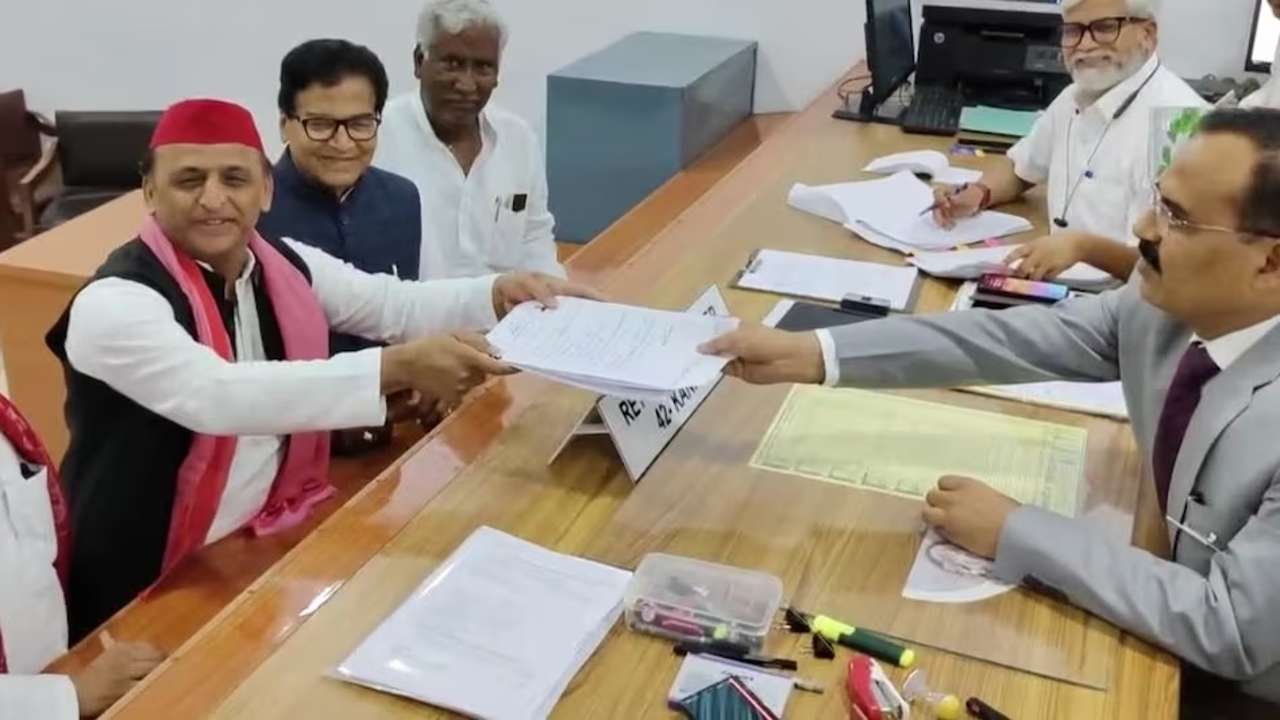
Samajwadi Party (SP) chief Akhilesh Yadav, submitted his nomination for the Kannauj Lok Sabha constituency ahead of tomorrow’s second round of voting. In front of Ram Gopal Yadav and other party leaders, the chief of the SP, who had previously contested the seat in 2000, 2004 and 2009, submitted the nomination.
Speaking with media, Ram Gopal Yadav said that SP would win the seat by a huge margin. The BJP candidate might lose his deposit in the seat, he said.
The Samajwadi Party has completely reversed its earlier plan to field former Mainpuri MP Tej Pratap Singh Yadav as their candidate, which is a significant political development.
Earlier, Akhilesh Yadav told reporters, people will find out when the nomination takes place, in reference to the speculations that he will contest for the seat. The historic victory of Kannauj is the subject of inquiry.
The former chief minister continued, the people have decided that the India bloc is coming as the future and the BJP will be history in this election.
Notably, elections for the Kannauj seat are scheduled for May 13, which would intensify the political drama that is now playing out in Uttar Pradesh. Previously regarded as the Samajwadi Party’s stronghold, the seat was lost by the party in the 2019 election when Subrat Pathak of the BJP won with a resounding victory.
The candidates competing for the following Uttar Pradesh seats will find out their destiny in the second round of voting, which is scheduled for tomorrow, Amroha, Meerut, Mathura, Baghpat, Aligarh, Ghaziabad, Gautam Buddh Nagar, and Bulandshahar.
Notably, two Bollywood celebrities running as BJP candidates in the second round are Hema Malini from Mathura and Arun Govil from Meerut. There are 91 contestants from UP competing in the second phase.
The seats in Gautam Buddha Nagar and Mathura are up for grabs, with a maximum of 15 applicants per seat. In Bulandshahr, six candidates are vying for the presidency. There are twelve contenders running in Amroha, eight in Meerut, seven in Baghpat, and fourteen in Ghaziabad and Aligarh.
1,67,77,198 votes will decide these candidates’ fates.
2024 Lok Sabha Elections
Bihar: Election Commission extends voting timings for 4 Lok Sabha seats due to heatwave
The voting period has been extended by two hours for a total of 299 polling stations
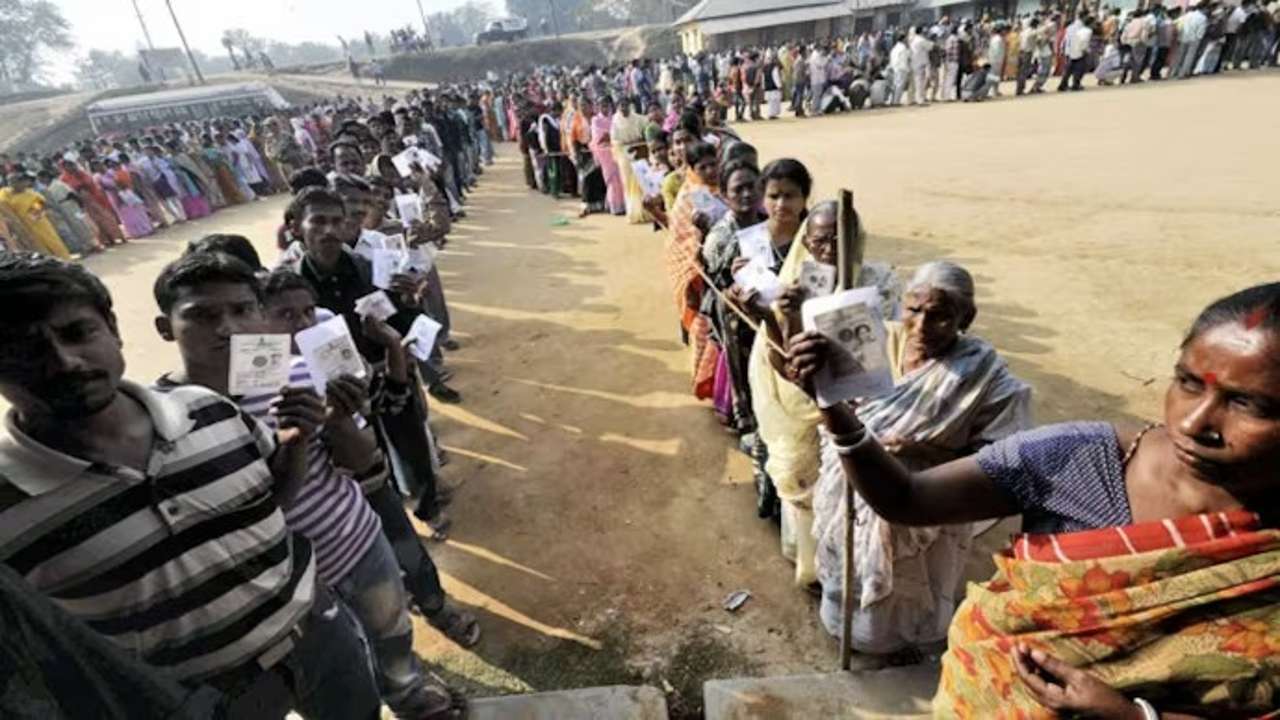
In accordance to the rising temperatures in Bihar, the Election Commission of India (ECI) has extended the voting hours for the upcoming three phases of the parliamentary polls at 1,700 polling places spread across four parliamentary seats, Banka, Madhepura, Khagaria, and Munger. The extension of the voting hours was announced by poll officials on Wednesday.
Polling generally takes place from 7 a.m. to 6 p.m. in most parts of the country, however, in certain isolated locations and in constituencies impacted by left-wing extremism, polls close two hours early to allow polling parties to move around easily.
The ECI gazette notification said the dates for the parliamentary constituencies of Banka (Katoria and Belhar assembly segments), which will hold elections on April 26, Madhepura (Mahishi assembly segment), Khagaria (Simri Bakhtiyarpur, Alauli, and Beldaur assembly segments), where voting will take place on May 7, and Munger (Suryagarha assembly segment), which will hold final phase elections on May 13, have been extended.
The voting period has been extended by two hours for a total of 299 polling stations in Simri Bakhtiarpur, 191 polling stations in Belhar AC of Banka, 172 polling stations in Katoria Assembly Constituency (AC) and 191 polling stations in Belhar AC of Banka, 207 booths in Mahishi AC of Madhepura seat, and 230 polling stations in Suryagarha AC of Munger.
In an effort to boost voter turnout, which fell to 49.26% in the first phase of polling on April 19 in Aurangabad, Gaya, Nawada, and Jamui from 53.47% in 2019 by 4.21%, the timing has also been extended.
Meanwhile, during the course of the next several days, temperatures in the southern states, namely Kerala and Karnataka, are predicted to rise by 2-3°C. In Southern Karnataka, where up to 14 constituencies are scheduled to vote in Phase 2, a heatwave warning has been issued. It is predicted to affect the districts of Tumkur, Davangere, Vijayapura, Yadgir, Koppal, Bagalkote, Kalaburgi, Raichur, Ballari, Chitradurga, Kolar, Chikkaballapura, Gadag, and Davangere.
The EC stated that a likely factor influencing voter turnout is the increase in temperature.
-
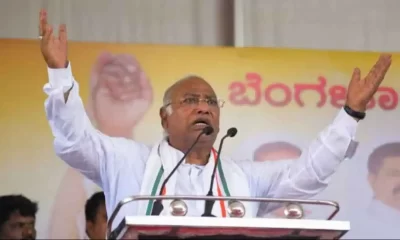
 2024 Lok Sabha Elections19 hours ago
2024 Lok Sabha Elections19 hours agoMallikarjun Kharge vows to continue politics till his last breath to defeat BJP
-
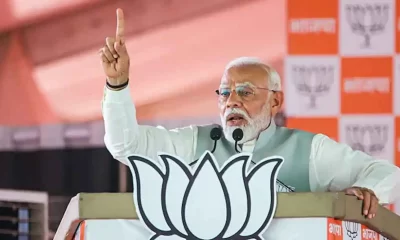
 2024 Lok Sabha Elections23 hours ago
2024 Lok Sabha Elections23 hours agoPM Narendra Modi slams Congress over Sam Pitroda’s inheritance tax remarks, accuses Congress of intending to impose higher taxes
-

 Entertainment21 hours ago
Entertainment21 hours agoMadhuri Dixit, Karisma Kapoor recreate Dil To Pagal Hai dance battle on Dance Deewane
-
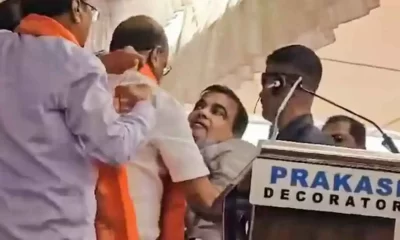
 2024 Lok Sabha Elections20 hours ago
2024 Lok Sabha Elections20 hours agoNitin Gadkari says he’s better now after collapsing at election rally in Maharashtra’s Yavatmal
-

 Entertainment2 hours ago
Entertainment2 hours agoBollywood stars Salman Khan, Alia Bhatt, Rekha, Sonakshi Sinha, Aditi Rao Hydari attend Sanjay Leela Bhansali’s Heeramandi premiere
-

 India News4 hours ago
India News4 hours agoTamannaah Bhatia summoned in illegal IPL streaming app case, to appear before cyber cell on April 29
-
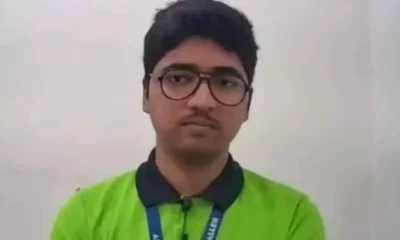
 Education50 mins ago
Education50 mins agoFarmer’s son Nilkrishna Gajare Nirmalkumar from Maharashtra scores 100 NTA score in IIT-JEE Mains 2024
-

 India News3 hours ago
India News3 hours agoLandslide hits Arunachal Pradesh, highway linking Indo-China border affected

